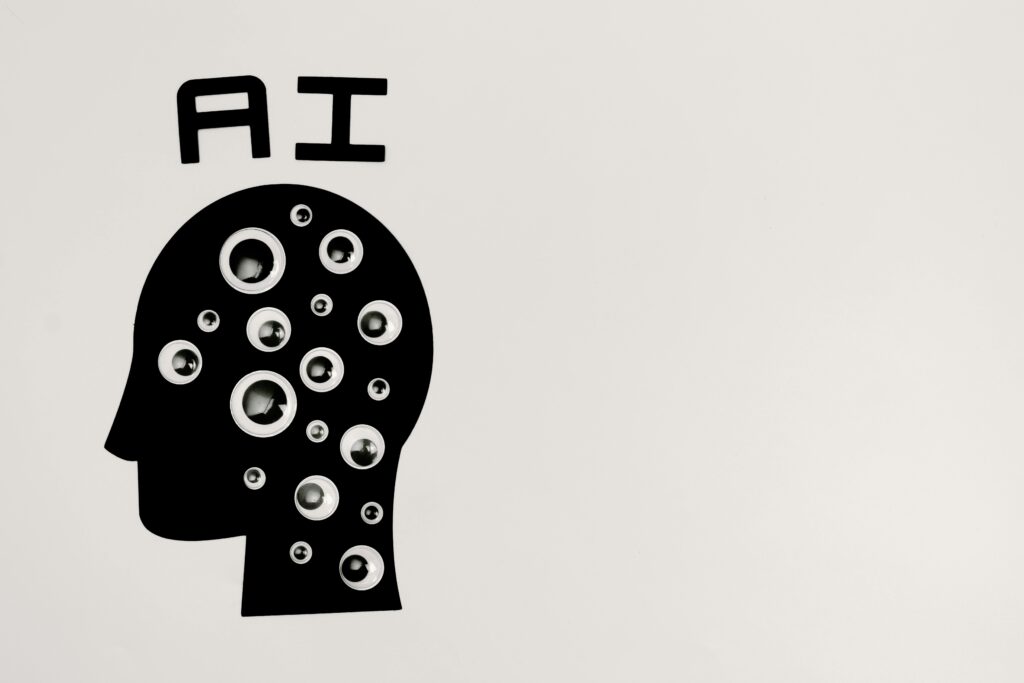Introduction to Artificial Intelligence

Artificial Intelligence (AI) refers to the simulation of human intelligence in machines designed to think and act like humans. This technology is built upon computer science, data analysis, and advanced algorithms that enable systems to perform tasks typically requiring human intelligence, such as visual perception, speech recognition, decision-making, and language translation. The origins of AI can be traced back to the mid-20th century when computer scientists began exploring concepts surrounding intelligent behavior and machine learning.
Initially, AI development was limited to basic algorithms that could perform specific tasks with minimal flexibility. However, over the decades, advancements in computational power, access to vast datasets, and the introduction of sophisticated machine learning techniques have led to the creation of complex systems. These systems utilize neural networks, which are designed to operate similarly to the human brain, allowing for enhanced performance in various applications. This evolution has marked a significant shift in how AI technologies are integrated into daily life, contributing to smarter devices, personalized experiences, and more intuitive interactions with technology.
Currently, AI is pervasive across multiple facets of society, exemplified by virtual assistants, recommendation algorithms, and AI-driven automation in industries such as healthcare, finance, and transportation. Each of these applications demonstrates the remarkable capabilities of AI technology, highlighting its potential to improve efficiency, accuracy, and overall quality of life. As the field continues to evolve, the boundaries of what AI can achieve are expanding, laying the groundwork for future innovations that will further embed artificial intelligence into our everyday routines.
AI in Smartphones: A New Era
In recent years, artificial intelligence (AI) has markedly transformed the capabilities of modern smartphones, ushering in a new era of mobile technology. The integration of AI enhances various aspects of user experience, providing consumers with smarter and more efficient devices. As smartphones become increasingly central to daily life, the role of AI in improving features and functionalities becomes ever more significant.
One of the notable advancements is the emergence of intelligent personal assistants such as Apple’s Siri, Google Assistant, and Amazon Alexa. These AI-driven assistants allow users to perform tasks hands-free, from sending messages and setting reminders to controlling smart home devices. This level of convenience not only saves time but also enhances productivity, illustrating how AI technology seamlessly integrates into everyday routines.

Furthermore, AI’s impact is profoundly evident in camera functionalities. Modern smartphones utilize AI algorithms to optimize image quality, enhance low-light photography, and even enable features like object recognition and real-time image enhancements. With advanced AI capabilities, smartphones can now recognize faces, adjust settings automatically, and apply sophisticated filters that were once limited to professional cameras. This has democratized photography, allowing users at all skill levels to capture stunning images effortlessly.
Additionally, AI is instrumental in boosting overall device performance. Machine learning algorithms can analyze user behavior to optimize battery usage, manage background applications, and improve app loading times. The result is an enhanced user experience characterized by faster performance and longer battery life. As smartphones continue to evolve, it is evident that AI is at the heart of these innovations, transforming how users interact with their devices.
In conclusion, the assimilation of AI technology into smartphones represents a significant shift in mobile technology. This integration enhances user experience through personal assistants, advanced photography capabilities, and improved device performance, marking the beginning of a new era in everyday life.
Voice Assistants: The Future of Interaction
Voice assistants have become integral to modern technology, presenting a transformative shift in how individuals interact with devices. As artificial intelligence continues to evolve, these virtual assistants are redefining user experiences through enhanced voice recognition, personalization, and automation. Today, tools such as Amazon’s Alexa, Google Assistant, and Apple’s Siri exemplify the impressive capabilities of AI-driven voice technology.
The advancement of natural language processing has significantly contributed to the effectiveness of voice recognition systems. These systems can interpret and respond to user queries with increasing precision, allowing for seamless communication between humans and machines. Users can easily conduct searches, set reminders, or manage smart home devices simply by speaking, which fundamentally changes the way we engage with our smartphones and other gadgets.
Furthermore, personalization is an essential feature of modern voice assistants, tailoring responses based on user preferences and habits. By leveraging machine learning algorithms, these assistants can adapt to individual behaviors over time, making interactions more intuitive and efficient. For example, a voice assistant may learn a user’s favorite music genre and recommend playlists accordingly, enhancing the overall experience and encouraging users to rely on these tools for daily tasks.
Automation is another critical benefit offered by voice assistants. They can streamline numerous activities by executing commands that would typically require manual input. From placing online orders to scheduling appointments, the ability to use voice commands lends users a level of convenience that is transforming daily routines. This automation not only saves time but also demonstrates the growing potential of AI in improving overall life efficiency.
In summary, the role of voice assistants in our daily lives illustrates the positive impact that artificial intelligence can have on user interaction with technology. Their capacity for voice recognition, personalization, and automation underscores a significant shift towards a more seamless and efficient integration of AI into everyday life.
AI-Powered Photography: Capture the Moment Effortlessly

Artificial Intelligence (AI) has ushered in a new era for photography, particularly through smartphone technology. With advancements in AI, mobile devices are equipped with enhanced features that significantly elevate the photography experience for users of all skill levels. Among these innovations, advanced image processing stands out. This technology allows for improved picture quality by automatically adjusting parameters such as brightness, contrast, and saturation, ensuring that users capture vibrant and true-to-life images with minimal effort.
Another remarkable feature of AI in photography is scene recognition. Modern smartphones leverage AI algorithms that analyze the environment in real-time, identifying subjects such as landscapes, portraits, or food. By recognizing these scenes, the camera can optimize settings automatically, guaranteeing that each photograph is taken under the best possible conditions. This not only simplifies the photographing process but also enhances the final product, allowing users to focus on capturing moments without the hassle of manual adjustments.
Furthermore, real-time editing capabilities driven by AI are revolutionizing how people interact with their photos post-capture. Users can make immediate adjustments using built-in editing tools that utilize AI to suggest filters and enhancements tailored to individual images. These swift modifications cater to various aesthetic preferences, enabling users to share high-quality photos on social media platforms almost instantly. As AI continues to evolve, the scope for creativity in photography is expanding exponentially, empowering even novice photographers to produce professional-grade images effortlessly.
In essence, AI technology is reshaping photography on smartphones, making it more accessible and enjoyable. As these intelligent systems become more sophisticated, users can expect even greater improvements in how they capture, edit, and share their memories, cementing AI’s role in transforming everyday life.
Real-Time Language Translation: Bridging Communication Gaps
The advent of artificial intelligence (AI) technologies has significantly transformed the way we communicate, particularly through real-time language translation. AI-powered translation applications have emerged as vital tools for breaking down language barriers, thereby fostering global communication in an increasingly interconnected world. Smartphones have become central to this evolution, incorporating sophisticated mechanisms capable of translating languages on-the-go.
For instance, mobile applications such as Google Translate and iTranslate utilize AI algorithms to offer immediate translations, often accompanied by features like voice recognition and text scanning. This functionality allows users to communicate seamlessly, whether during international travel, business meetings, or everyday interactions with diverse communities. Such applications analyze vast datasets, applying machine learning to learn from user interactions, thereby improving translation accuracy over time.
Beyond simple text translation, advanced real-time language translation systems leverage neural machine translation (NMT) technology to provide contextually relevant translations, accounting for nuances and idiomatic expressions that traditional methods might overlook. This capability can significantly enhance user experience in diverse scenarios, ranging from social gatherings to professional settings, where precise communication is crucial.
Furthermore, AI-driven translation tools are increasingly being integrated into various platforms, including messaging applications and video conferencing software, enabling users to converse in different languages effortlessly. This accessibility paves the way for enriched interpersonal connections, encouraging cultural exchange and collaboration across borders.
In conclusion, AI’s role in real-time language translation serves as a monumental leap toward eliminating communication barriers. By harnessing the power of technology, individuals can engage with one another, regardless of linguistic differences, illustrating how artificial intelligence is fundamentally transforming everyday life.
Top AI-Enhanced Smartphones on the Market
The evolution of artificial intelligence has significantly influenced the design and functionality of smartphones, leading to the introduction of cutting-edge models. Among the leading devices available today, the Samsung Galaxy S24 Ultra stands out due to its innovative AI features, including intelligent photo editing options and enhanced facial recognition capabilities. With its advanced Neural Processing Unit (NPU), the S24 Ultra optimizes performance and battery efficiency while delivering exceptional user experiences.
Next is the Google Pixel 8 Pro, which leverages AI to elevate its photography capabilities. It includes features like Magic Eraser and Real Tone, which utilize machine learning algorithms to ensure that skin tones are accurately portrayed in images and allows for effortless background editing. Additionally, the Pixel 8 Pro offers voice recognition that continuously improves, facilitating seamless integration with Google Assistant and enhancing everyday tasks.
The iPhone 15 Pro Max is another formidable contender in the realm of AI-enhanced smartphones. Apple’s A17 Bionic chip incorporates an advanced neural engine that enhances the device’s ability to perform complex tasks such as image processing and augmented reality applications. Its computational photography capabilities, powered largely by AI, allow users to capture professional-grade photos with minimal effort, further establishing Apple as a leader in smartphone technology.
Following suit is the OnePlus 12, which employs AI to customize user experiences based on habits and preferences. This model features Smart Boost technology, which utilizes machine learning to optimize storage and memory management, leading to improved app performance. Moreover, its AI camera system intelligently adjusts settings for various scenarios, ensuring users consistently achieve pristine images.
Lastly, the Xiaomi 14 Ultra showcases impressive AI capabilities with its adaptive battery management and personalized UI features. The device’s AI assistant learns from user interactions, tailoring suggestions for applications and simplifying everyday tasks. By merging powerful hardware with sophisticated artificial intelligence, the Xiaomi 14 Ultra represents the forefront of smartphone innovation.
Gaming on AI-Optimized Devices
Artificial Intelligence (AI) has fundamentally shifted the landscape of gaming on smartphones, offering enhancements that significantly improve user experiences. By implementing AI optimization, developers are able to create smarter applications that manage and allocate resources more efficiently. This optimization directly translates to better performance, allowing games to run smoothly even on devices with limited hardware capabilities. The AI algorithms assess system resources in real-time and adjust performance settings accordingly, ensuring that users enjoy an uninterrupted gaming experience.
One of the key areas where AI makes an impact is in graphics rendering. With AI-driven techniques, games can utilize advanced rendering methods that enhance visual quality without demanding excessive computational power. These algorithms analyze the game’s visual environment, making real-time adjustments to texture quality and effects based on the user’s device specifications. As a result, gamers can experience rich graphics while maintaining optimal frame rates, creating more immersive gameplay.
Furthermore, AI optimization also plays a pivotal role in predicting player behavior and preferences. Smart algorithms can track gameplay patterns to personalize experiences, such as adjusting the difficulty level or suggesting new content tailored to individual interests. This predictive capability not only increases player engagement but also allows for a more challenging and enjoyable gaming environment. With continual refinement through machine learning, AI becomes more adept at offering customized experiences that resonate with a wider audience.
Ultimately, the integration of AI in gaming on smartphones represents a significant leap forward in technology. By enhancing performance, optimizing resource management, and refining graphics rendering, AI is reshaping how gamers interact with their devices, setting new standards for what can be achieved in mobile gaming.
Smart Battery Management: AI for Longevity
Artificial Intelligence (AI) is making significant strides in various technological domains, one of the most notable being smart battery management for smartphones. Innovations in AI have introduced methods to optimize power consumption, extend battery life, and tailor energy usage according to user habits. By leveraging machine learning algorithms, modern smartphones analyze user behavior patterns to make real-time decisions that enhance battery efficiency.
AI-driven applications continuously monitor the performance of mobile battery systems, employing predictive analytics to anticipate energy requirements. For instance, these systems can track how often users leverage specific applications and adjust background activity accordingly. This optimization helps conserve battery by reducing unnecessary power consumption. By classifying applications into high and low priority based on usage data, AI can allocate resources effectively, ensuring that frequently used apps operate smoothly while minimizing the energy employed by those that are rarely tapped.
Moreover, AI systems can learn from user preferences and schedules, allowing them to make informed decisions about when to engage or suspend certain functionalities. This adaptive approach to energy management ultimately contributes to a longer-lasting charge. In situations where battery levels are critically low, AI can intelligently restrict power to unessential processes, thereby prolonging device usability until recharging is feasible.
- MOVE IT. REMOVE IT. IMPROVE IT: Take a great pic, then make it better using Photo Assist¹ with Galaxy AI,² It gives you …
- NEVER BE LOST IN TRANSLATION AGAIN: Understand text, calls and in-person conversations in another language using real-ti…
- SLOW-MO MADE SIMPLE: Sometimes you just want to make the moment last longer. Using Instant Slow-Mo¹ with Galaxy AI,² sim…
Furthermore, innovations such as AI-enhanced battery charging technologies allow devices to learn the optimal times for power replenishment. By synchronizing charging times with typical user routines, these applications can charge the device more efficiently, thus safeguarding battery health over extended use. AI’s role in smart battery management is crucial in promoting longevity, which is increasingly vital in a world where smartphone dependence continues to grow. As AI technology evolves, we can anticipate even smarter and more efficient battery management solutions that enhance our daily lives.
The Future of AI and Mobile Technology
The integration of artificial intelligence (AI) with mobile technology is poised to revolutionize the way users interact with their devices and the digital world. As we look towards the future, the potential advancements in AI applications for mobile devices seem limitless. With increasing computational power and innovative algorithms, mobile phones will increasingly emulate human cognitive functions. This development will enhance user experience, enabling personalized and intuitive interactions through voice recognition, natural language processing, and predictive analytics.
One interesting trend involves the improvement of virtual assistants, such as Siri and Google Assistant. Future iterations will likely possess enhanced conversational abilities, providing more context-aware interactions. This evolution will pave the way for smarter user interfaces that learn from individual preferences and habits, thus customizing the mobile experience unique to each user. Such personalization will not only streamline daily tasks, but can also promote efficiency in both personal and professional settings.
However, ethical considerations must accompany these technological advancements. Issues surrounding data privacy and security will take on heightened importance as mobile devices increasingly collect and analyze personal data. Balancing the collection of meaningful insights with the protection of user privacy presents a significant challenge. Developers and policymakers will need to establish robust frameworks to ensure that AI deployed in mobile technology is transparent and ethically sound, fostering trust among users.
As the boundaries between AI and mobile technology continue to blur, we can anticipate innovations such as augmented reality (AR) applications that incorporate AI-driven features, offering seamless experiences that enhance the way users interact with their environment. In addition, advancements in machine learning will likely facilitate more effective problem-solving capabilities on mobile platforms, ultimately leading to smarter applications that can adapt to an individual’s evolving needs.



